How to look after a backyard swimming pool – expert advice for proper pool maintenance
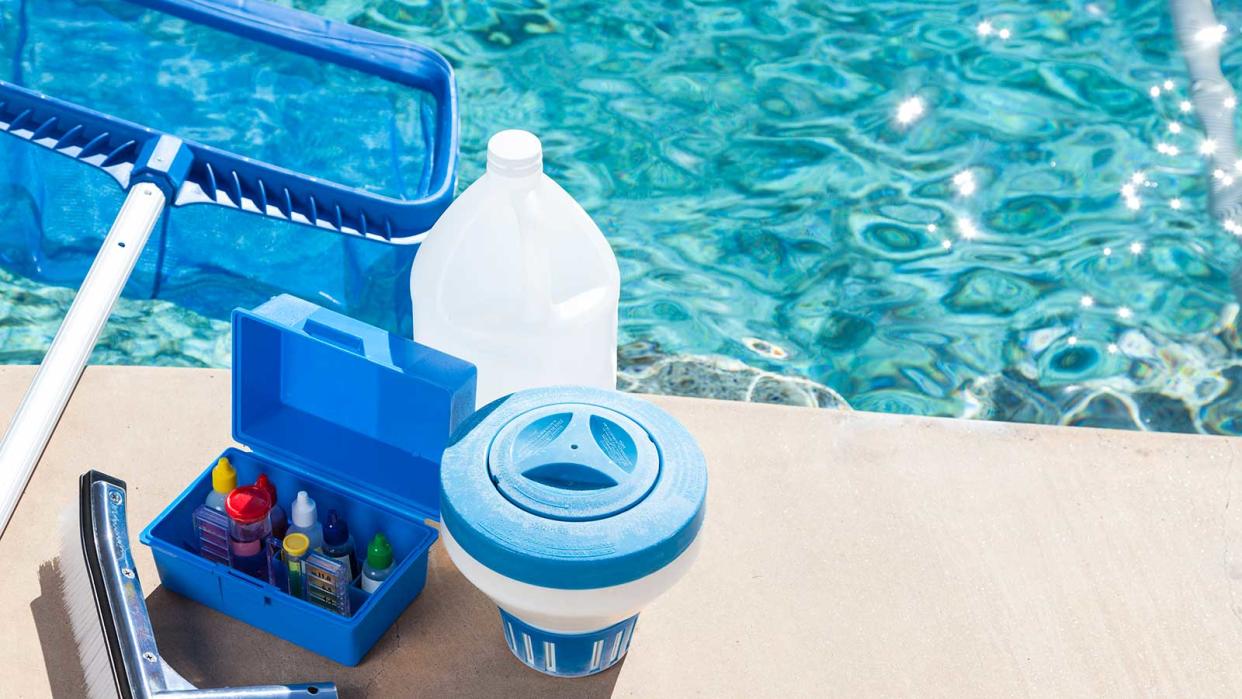
A pool is a fabulous feature for a backyard, but it does require some effort in terms of maintenance. Not looking after it properly can make it unsafe for swimming, putting friends, family, and yourself at risk. Not to mention, a pool that's full of green algae or cloudy water isn't exactly inviting or aesthetically pleasing.
So, to get the most from your backyard pool, it's crucial to keep it in tip-top condition. There are a few essential steps to the process, but it's worth the effort.
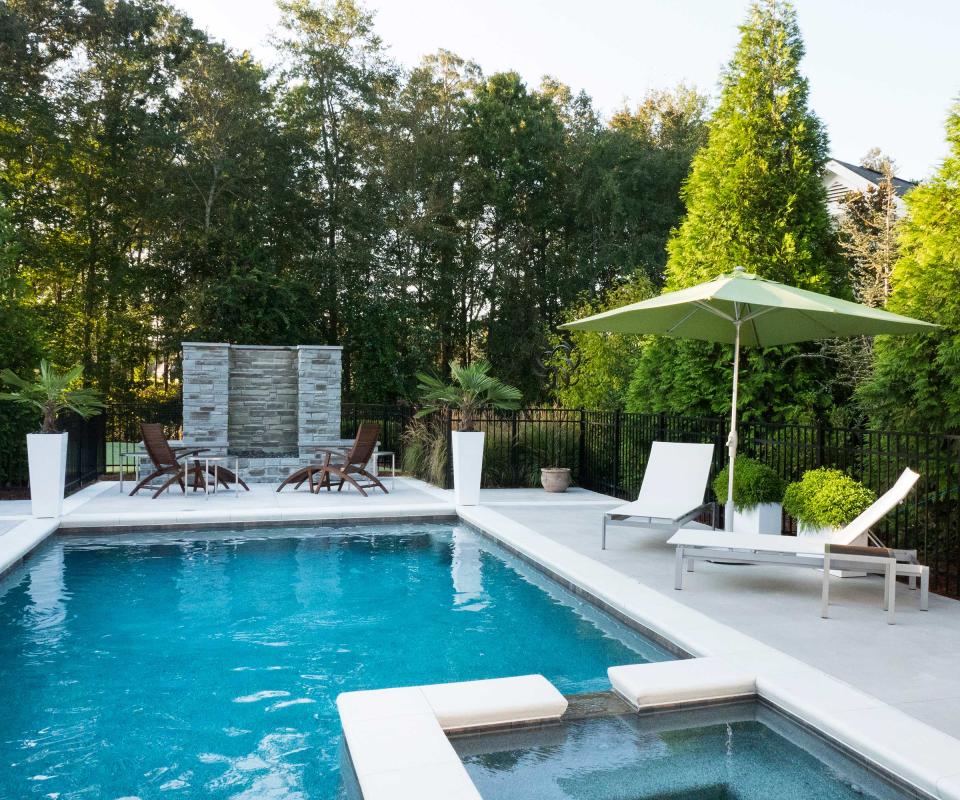
3 essential steps for proper pool maintenance
'There are three Cs in pool care: chemistry, circulation, and cleaning,' says Alicia Toedter of Leslie's, a pool supplies company. This guide explains each step.
1. Balance the water chemistry
Applying a daily sanitizer and weekly applications of pool shock will help to keep the water clean and safe, says Alicia. However, regularly testing the water is crucial.
'During swim season, pool water should be tested at least once a week, depending on usage, and problems should be addressed as soon as they are detected,' she advises. You can buy kits for this from Amazon, such as Easytest's 7-way pool testing strips.
There are multiple factors that need to be monitored and kept in check.
Two of these are the Free Available Chlorine (FAC) and the Total Available Chlorine (TAC) levels. FAC is the amount of chlorine in the water that is available to sanitize and disinfect, explains Clay Spann, a water-testing expert from Leslie's. 'A pool without enough FAC will be susceptible to germs and algae; too much FAC can cause bleaching and may irritate your skin and eyes.' TAC, meanwhile, refers to the total of all chlorine compounds in the water. 'A difference between your TAC and FAC levels often means it’s time to shock the pool,' he says.
'You want to make sure that the chlorine level falls between 1 and 3 ppm,' says Thomas Reesbeck of Kokido, a pool-maintenance equipment company. 'There are a variety of chlorine options available, the most popular option being chlorine tabs and a built-in stabilizer that protects them from the sun, and therefore makes them last longer.'

Then there's the pH level, which reveals how acidic the water is. A level between 7.4 and 7.6 is recommended. 'High pH reduces chlorine efficacy and can cause scale buildup and water cloudiness, while low pH leads to rapid chlorine dissipation and can corrode pool surfaces and equipment,' Clay says. 'Unbalanced pH also causes skin and eye irritation.'
You should also test for Total Alkalinity – 'This influences the water’s ability to control and buffer the pH against rapid changes,' Clay explains.
Other factors that are worth monitoring include calcium hardness, cyanuric acid (which helps prevent chlorine from breaking down under the sun’s UV rays), iron or copper levels (which can cause staining), phosphates (which can encourage algae growth), and total dissolved solids (TDS), which include minerals, salts, metals, and more. 'With too many total dissolved solids, your chlorine’s sanitization efficiency is diminished,' Clay says.
'Once you’ve tested your pool water and know your water’s chemistry, it’s time to balance and sanitize the pool,' says Alicia. Balancing will keep your sanitizer working efficiently and prevents pool damage, she adds.
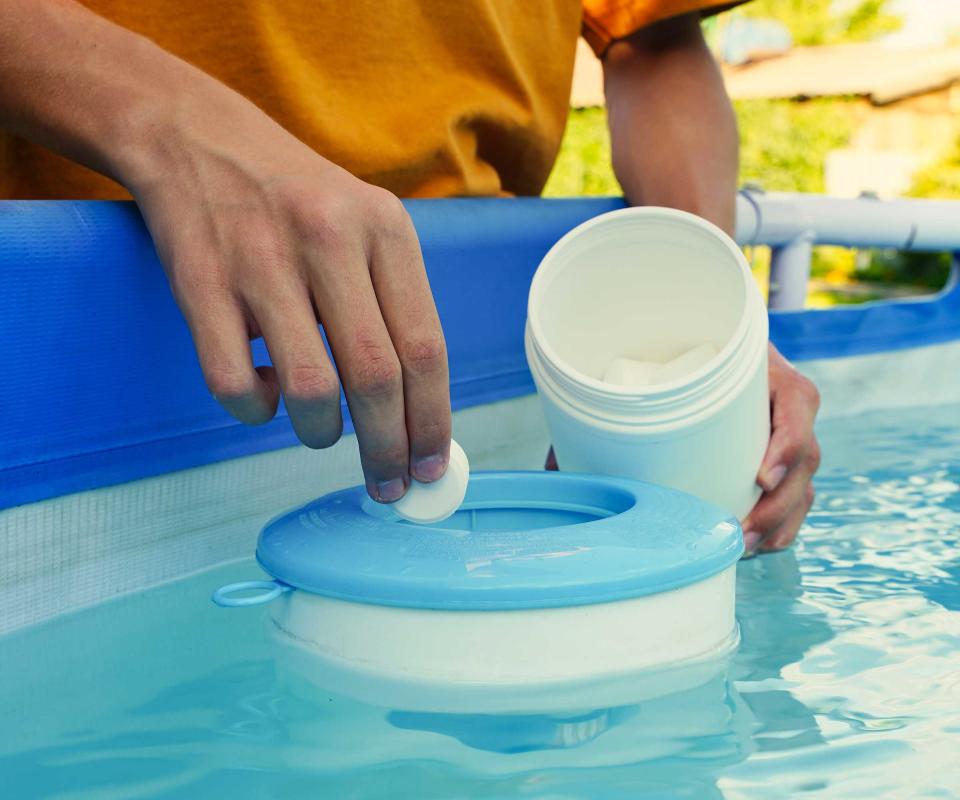
2. Ensure the water is circulating correctly
'Next is circulation, which involves running the pool pump,' says Alicia. This ensures debris and harmful contaminants are filtered out, and the pool chemicals are well integrated into the water.
The biggest mistake most pool owners make is not running the pump for long enough, Alicia reveals. 'Warmer weather requires more circulation, so it’s important to check your pool timer settings as the weather changes.'
She recommends running the pump for at least one hour per day for every 10°F of air temperature for a single-speed pump. 'Variable-speed pumps should run longer as they run at lower speeds; many pool owners run their variable-speed pumps for 12 or more hours per day.'
To ensure your filter is functioning correctly, it's essential to keep it clean. 'There are three common pool filter types: cartridge, diatomaceous earth (DE), and sand,' says Alicia. 'In most cases, you should clean the filter when the pressure gauge reads 8-10 PSI above the clean "starting pressure", or according to the manufacturer’s recommendation.
'Sand and DE filters require backwashing, while cartridge filters require manual cleaning with a spray nozzle. As filter media ages, it loses its filtration ability, so replace the sand, filter cartridges, or filter grids as needed to maintain peak filtration.'
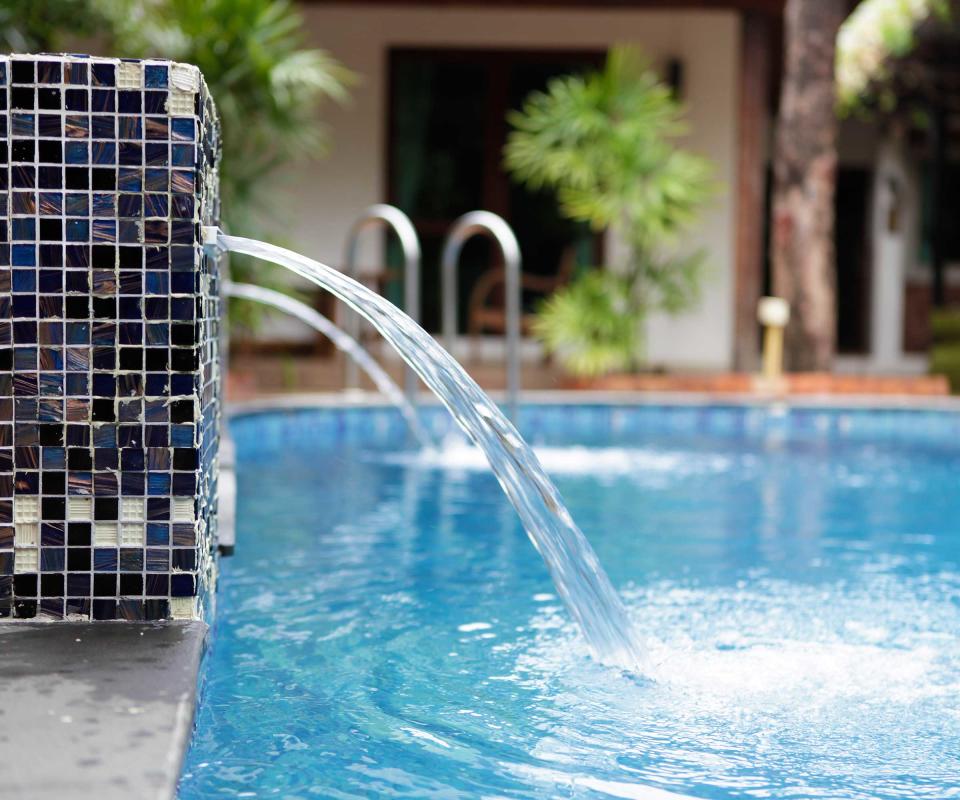
You will also need to clean any debris, such as trapped leaves, from your pump strainer and skimmer baskets. Otherwise, the water won't circulate as effectively.
'It’s important to check your pump strainer and skimmer baskets at least once a week, and empty them as necessary,' says Alicia. 'If you notice cracks or damage on the basket, replace it immediately,' she adds. 'Even a slight crack in the basket can allow debris to flow through under pressure, leading to hidden blockages in your pool's plumbing.'
3. Keep it clean
'The final step is cleaning,' says Alicia. This helps to prevent pool algae from forming, as well as organic stains and scale buildup. It also helps to reduce chlorine use by keeping debris to a minimum, she explains.
There are a few tasks involved. Use a pool net, such as the Mowend Swimming Pool Skimmer from Amazon, to regularly remove debris, such as fallen leaves and pollen, from your pool. You should also brush the sides and floor of your pool at least once a week. 'Brushing dislodges dirt, algae spores, and other debris from pool surfaces, allowing the filtration system to be more effective at removing them,' Alicia says. As well as this, you will need to use a pool vacuum around once a week – or, anytime there is a large amount of debris at the pool bottom, for example, after a pool party or heavy storm, Thomas adds.
'An automatic pool cleaner that removes debris and scrubs the floors, walls, and waterline can greatly reduce the amount of time needed to clean the pool each week,' says Alicia. But, manual cleaning – skimming and brushing – is still needed.
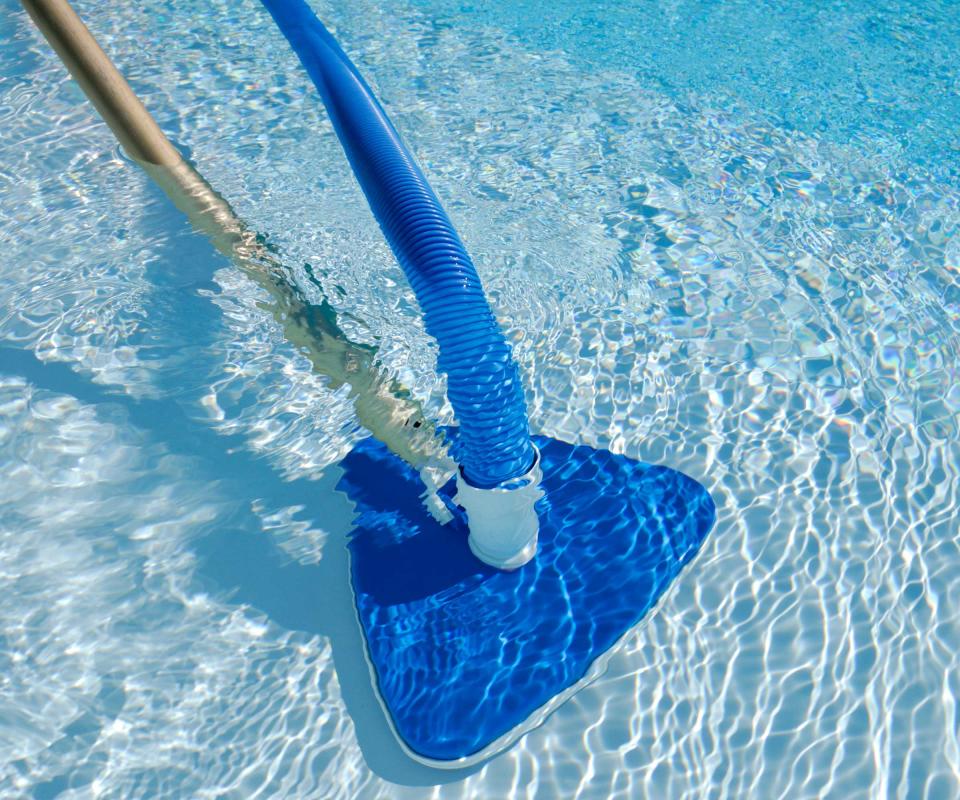
FAQs
Why does my pool smell strongly of chlorine?
'When you smell the overly strong odor of chlorine, it usually means there’s not enough Free Available Chlorine in the pool water,' says water-testing expert Clay Spann from Leslie's. 'That powerful smell is chloramines, which form when inactive chlorine bonds with ammonia molecules.
'Chloramines are poor disinfectants and diminish the power of chlorine,' he continues. 'They also can irritate the eyes and cause respiratory issues. So, that strong chlorine odor is really an alert to test your water’s chlorine levels and ensure proper sanitization.'
My pool water looks clean, so surely it's safe to swim in?
Unfortunately, this isn't always the case. 'A pool may be free of debris, and the water may look crystal clear, but unpleasant scenarios can come about when swimming in water that’s not properly balanced,' warns Clay Spann of Leslie's. Imbalanced pool water can encourage the growth of disease-causing microorganisms, and pool water must be disinfected to rid it of these harmful pathogens, he says.
'Without testing to look at the water chemistry and ensure proper chlorine levels in the pool, you just don’t know if the pool water is safe and sanitized. You have to test regularly.'
Even smaller pools, such as plunge pools, need proper maintenance. Hot tubs need regular cleaning, too. And keeping them properly maintained isn't just better for your health – it's also better for your wallet in the long term.
Issues such as algae bloom can be expensive to treat, says Clay. What's more, he highlights that imbalanced water can damage a pool and pool equipment, shortening their life – and this can void the manufacturer's warranty.

